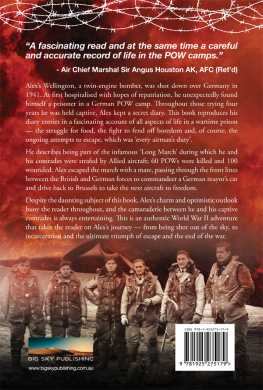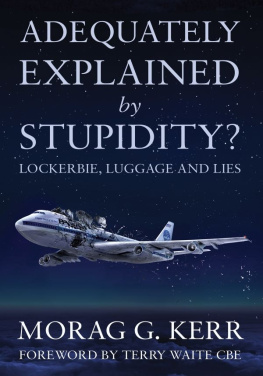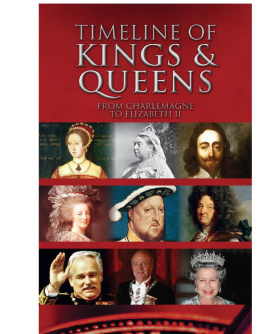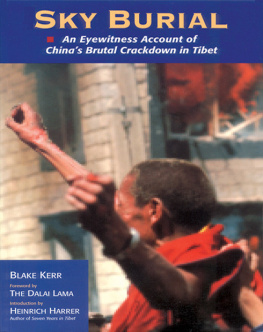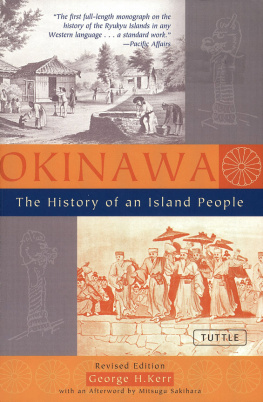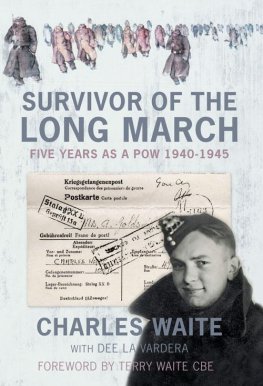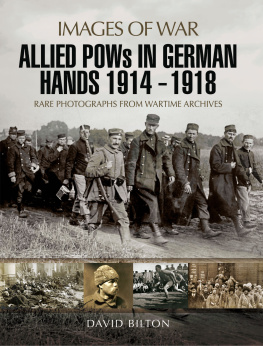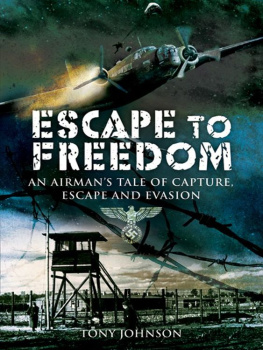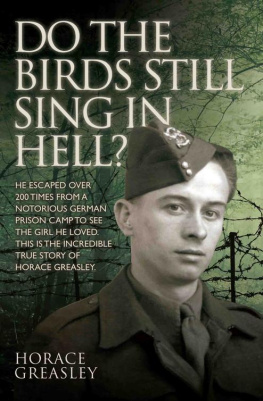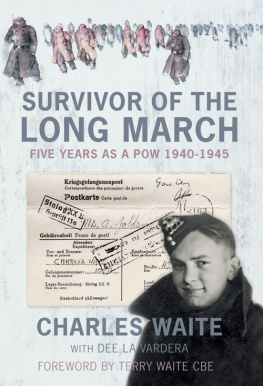
A secret diary of one POWs long march to freedom

A secret diary of one POWs long march to freedom

Alex Kerr
Copyright Alex Kerr
First published 2015
Copyright remains the property of the authors and apart from any fair dealing for the purposes of private study, research, criticism or review, as permitted under the Copyright Act, no part may be reproduced by any process without written permission.
All inquiries should be made to the publishers.
Big Sky Publishing Pty Ltd
PO Box 303, Newport, NSW 2106, Australia
Phone: 1300 364 611
Fax: (61 2) 9918 2396
Email:
Web: www.bigskypublishing.com.au
Cover design and typesetting: Think Productions
Printed in China by Asia Pacific Offset Ltd
For CIP data see National Library Australia.
To my wife
Joan Ivy Kerr
19212000
CONTENTS
It was a great honour to be asked to write a foreword to this story because it is a story that resonates greatly with me, as it is very similar to my fathers story. Like Alex Kerr, my father was also shot down as a very young man, incarcerated for the remainder of his war in Stalag Luft III and at the very end of the war marched across Northern Europe in bitter winter conditions, emerging from the whole experience a man of great resilience and integrity.
This book is a fascinating read and at the same time a careful and accurate record of life in the POW camps. Alex Kerr states in his epilogue that he set out to give an account of his days as a POW in the Second World War based on his diaries, which he kept meticulously during his incarceration. These diaries were transcribed directly and the background narrative added later, with a view to providing a historical, factual account of that period of our war history. Throughout Shot Down the author gives a very matter-of-fact account of his whole experience of being shot down, wounded and imprisoned at the age of 20. There are no complaints or emotional self-indulgence, and yet the author paints a very clear picture of life in the camp. His strength, courage and devotion to his mates, his supreme optimism and determination to make the best of any situation, come through the narrative on every page. Occasionally however, we get glimpses of the pain, despair and futility that he must have felt at times. He manages to encapsulate the whole POW experience in his description of the gift of an egg, an unheard-of luxury, on his 21st birthday, from a fellow prisoner he hardly knew. The hunger that was almost always with them is suddenly brought into clear focus. He dismisses his own efforts to escape lightly and gives a fascinating account of his escape from the Death March, his journey to the Allied lines and his final self-repatriation back to England.
Air Chief Marshal Sir Angus Houston AK, AFC (Retd)
The German ambulance bumped and swayed as it sped in the dark along the rough country road. Its headlights, striving to shine through the meagre wartime slits, broke the darkness and lit up the road ahead with a narrow beam.
The rough movement of the ambulance threw me from one side of the stretcher to the other, making me strain against the leather straps which held me in. My breathing was laboured. I was in pain, but it was more mental than physical. I was bleeding from my chest, my arm and my leg in a sticky mixture of torn leather, torn fur, and torn flesh and blood. It was not a pleasant sight.
As I fought for each breath and recalled what had happened to me I became convinced more than ever that I did not have much more than minutes to live. So several times I tried unsuccessfully to end the pain quickly by holding my breath. The effort exhausted me and I lay back to await the end with resignation. I drifted off to sleep thinking back on my life and to where it all started.
My father, Bill Kerr, was born in Scotland in 1880 and, after service in South Africa in the Boer War, immigrated to Australia. Here he met Lillian Weight, who had been born in New South Wales in the same year, but was by then living in Victoria with other members of her family. They were married in Toorak in 1903. They lost their first babya boyand then in 1906 had another boy, William Langford.
After Bill had been plying up and down the eastern seaboard as a ships engineer, the couple set out by ship for Western Australia with the baby. My brother was christened William Langford but known throughout his life as Langford, presumably to avoid confusion with my father, who was also William. The ships voyage ended at Albany so they disembarked there and made their way by land to Perth. Bills first job was with a large hardware firmHarris Scarfe and Sandoverswhich handled machinery and other equipment. He was a trained engineer and Scottish engineers were in demand in those days.
The first of many moves in their new state came when Bill was given the task of installing a suction gas engine and setting up a power station to give electric light to Southern Cross, a town which was fast becoming an important communication and population centre on the line from Perth to Kalgoorlie. It was there that Freda was born, in 1909, and Frances the following year. About 1912 a similar assignment saw the family move to Kellerberrin where Bills task was to install the towns power plant and then spend a year or so training an operator to run the plant.
This completed, the family moved back to Perth and took up residence in West Leederville. After a brief stay there Bill was on the road again, this time to Albany to install the power plant there. After completion the family moved back to West Leederville once more. Thus ended a period during which Bill was in demand for installing power plants in the young growing towns in fledgling Western Australia, substituting electric light for candle light and oil lamps.
It was at the time of the outbreak of World War I in Europe that Bill joined the staff of Hoskens Foundry in Perth to run its power plant. Along with several other companies it was owned by mining entrepreneur Claude De Bernales. De Bernales was a very wealthy man. A rogue is how many would have described him, much of his money having been made through dubious mining ventures. He used some of his money to construct a large mansion at Cottesloe. Bill was responsible for supervising the electrical installations. The mansion later became the Cottesloe Civic Centre.
Bill recalled the early days in the outback when he would wait on his motorcycle outside some mining tenement, ready to start the motor for a quick getaway. More than once a fleet-footed De Bernales, pursued by an irate miner who felt he had been fleeced, would sprint to the bike, leap on the pillion and the two of them would disappear in a cloud of red dust. It was his mining ventures, promoted so successfully in London, and his dubious business ethicsto give them the most charitable interpretationwhich eventually brought about his downfall and subjected him to the humiliation of a public trial at the Old Bailey. By this time Bill had long left his service and moved into the oil business.
He recalled other incidents in the then colourful Western Australian outback where, even though the heady days of the Kalgoorlie and Coolgardie gold rushes had receded into the past, the lure of gold still drew hopefuls from all parts of the globe. His earliest visits there were as a greenhorn Scot, not knowing quite what to expect and having heard hair-raising tales of violence on the fields, for self-protection he carried a pistol and slept with it under his pillow.
Next page
